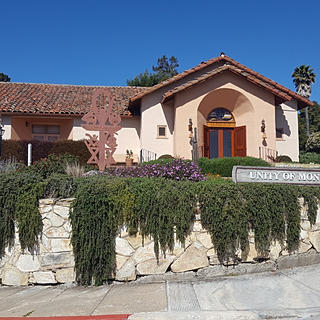Rev. Michelle's Message February 10, 2022
- M Price
- Feb 13, 2022
- 3 min read
What is Unity?
A couple of week’s ago Vicky shared in the Minister’s Message an “elevator speech” type of explanation of what Unity is that she heard from Rev. Doris Hoskins:
"Unity is a positive, practical, progressive approach to Christianity based on the teachings of Jesus and the power of prayer. Unity also honors the truth in all spiritual paths and respects each person's right to discover their own truth."
It’s great to have a ready-made, succinct response when folks inevitably ask you what Unity is or how it differs from other churches, and the above description seems quite apt.
When people ask you about Unity, you might be tempted to list out the Five Basic Unity Principles. However, Mark Hicks, the creator of truthunity.org, thinks that would be a mistake. He says that while the Five Basic Principles function really well as a way for Unity Truth students to organize our belief system, they are better suited for internal consumption (people within Unity) than for bringing new people into Unity. He claims that the Five Principles lay out our belief system whereas when people ask us about Unity what they really want to know is what makes Unity unique and what the benefits are of studying Unity principles.
Another way of saying this is that the Five Basic Principles describe our theology—how we understand the nature of God and the cosmos, as well as God’s relationship to human beings. But as we know, in Unity we have our own “language,” or way of talking about spirituality, and people who are new to Unity or New Thought might not understand what we’re talking about. Trotting out the Five Principles may only confuse people. However, if we share with folks what we feel are the benefits of Unity’s approach to Practical Christianity, or, in essence, why Unity “works” for us, we may do a better job of representing our movement and of making it appealing to others.
Here are some examples:
Unity helps us understand the nature of God and of human beings. It helps us get in touch with our own divinity, as beings made in the image and likeness of God. Unity gives us a strong faith in God’s goodness and in our own inherent goodness as well.
Unity has helped me to develop a relationship with the God of my understanding and to honor my own inner divinity.
Unity has helped me to understand Jesus’ teachings and the Bible in a way that makes sense to me.
Unity helps us learn how we can change our lives by changing our thoughts, feelings, and beliefs. We learn to live “from the inside out,” making changes in our consciousness in order to effect change in our earthly lives.
Unity teaches us how to pray in a way that is simple and that brings results, in addition to prioritizing time spent in meditation or in the “Silence.”
There are just a few ideas. One of the main ways people get connected with Unity is through word of mouth, so it wouldn’t be a bad idea to spend some time thinking about what you perceive to be the benefits of Unity’s teachings. This will help you get clear about what you really value about Unity as well as prepare you to answer that inevitable question: What is Unity?
If you’re interested, here’s a link to Mark Hicks’ article on truthunity.org: https://www.truthunity.net/monthly-magazine/1975-02-unity/practical-christianity-it-works.
Over the next five weeks, we will be looking more closely at the Five Basic Unity Principles. I look forward to revisiting and exploring in new ways with you these foundational concepts of our Unity belief system.
Many Blessings,
Rev. Michelle














Comments